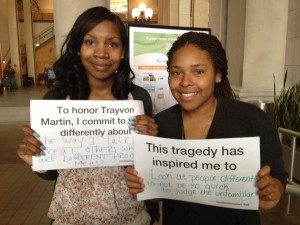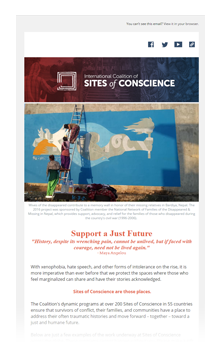FROM BROWN V. BOARD TO FERGUSON
From Brown v. Board to Ferguson:
Fostering Dialogue on Education, Incarceration, and Civil Rights
In July 2014, on the 50th Anniversary of the passage of the Civil Rights Act, U.S. Secretary of Education Arne Duncan declared education “the civil rights issue of our time,” Sixty years after Brown v. Board of Education, which ended legal segregation in public schools, education equity remains elusive. Schools often remain segregated in practice, and Black and Latino students face unequal educational opportunities. A significant contributing factor to the racial achievement gap is the rate of Black and Latino students being suspended and expelled from school. Some are even arrested on school grounds, referred to the juvenile justice system and sent to correctional institutions. This trend is so common it has become known as the “school to prison pipeline.”
Duncan declared education “the civil rights issue of our time,” Sixty years after Brown v. Board of Education, which ended legal segregation in public schools, education equity remains elusive. Schools often remain segregated in practice, and Black and Latino students face unequal educational opportunities. A significant contributing factor to the racial achievement gap is the rate of Black and Latino students being suspended and expelled from school. Some are even arrested on school grounds, referred to the juvenile justice system and sent to correctional institutions. This trend is so common it has become known as the “school to prison pipeline.”
This phenomenon highlights the broader issue of office-involved violence directed at minorities, in particular young Black men. The cases of Trayvon Martin, Jordan Davis, and Michael Brown have ignited a national conversation on the abuses young men of color endure and the debate has reached a vitriolic pitch.
Museums and similar institutions grounded in historic truths – Sites of Conscience – are uniquely positioned to serve as civic spaces where all members of the community can engage in dialogue on the racial achievement gap, disproportionate levels of incarceration, school discipline of young people of color, and related civil rights issues.
In October 2015, the International Coalition of Sites of Conscience launched a three-year initiative, From Brown v. Board to Ferguson: Fostering Dialogue on Education, Incarceration, and Civil Rights, with generous support from the U.S. Institute of Museum and Library Services. Through this grant, participating sites and their community partners will create dynamic public engagement programs focused on youth with the goal of fostering much-needed community dialogue on race, education equity and incarceration in the context of civil rights history. Additionally, the project will train and work with young people (ages 15-25) to assist them in establishing their own civic engagement programs at museums in their communities. This project will build on the Coalition’s 15-year history of developing model programs that can be shared throughout the broader Coalition network and beyond.
The Institute of Museum and Library Services is the primary source of federal support for the nation’s 123,000 libraries and 35,000 museums. Our mission is to inspire libraries and museums to advance innovation, lifelong learning, and cultural and civic engagement. Our grant making, policy development, and research help libraries and museums deliver valuable services that make it possible for communities and individuals to thrive. To learn more, visit www.imls.gov and follow IMLS on Facebook and Twitter.


